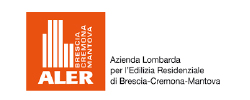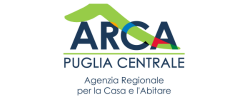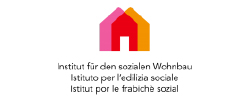Our Members in Italy




Social housing in Italy
What is social housing in Italy?
An official definition of social housing in Italy was provided for the first time in 2008. Social housing consists mainly of dwellings rented on a permanent basis. Also considered as social housing are dwellings built or rehabilitated through public and private contribution or the use of public funding, rented for at least eight years and also sold at affordable price, with the goal of achieving social mix.
There are three main types of publicly supported housing: subsidised housing (edilizia sovvenzionata), assisted housing (edilizia agevolata) and agreed housing (edilizia convenzionata). (Credit: The Housing Europe Review)
Who provides social housing?
The public sector is mainly represented by the former IACP. The IACP was created in 1903 as public bodies and has now transformed into autonomous public agencies with different legal statutes. They own and/or manage public housing stock, and they target their activities to low income households.
Municipalities own social rental dwellings. In some cases, they also manage them directly. In terms of the size of the public sector, although over a million dwellings were built in the post war period, the public social rented sector never grew significantly larger. This was because large segments of the stock are continuously being sold off. Housing cooperatives and other private providers have been involved in the provision of social housing since 1978. (Credit: The Housing Europe Review)
How is it financed?
Financing is provided by the Regions. Municipalities, together with the Regions, co-finance personal aids for the rental sector and allocate land to providers. The central government is responsible for macro-programming and co-financing projects through housing allowances, co-funding urban renewal programmes and programmes to support social rental housing.
The National Housing Plan set the basis for new forms of public/private partnerships, through the creation of an integrated real estate fund. This consists of a national fund and a network of local revolving funds dedicated primarily to financing social housing. This financing modality represents a real revolution but also a challenge, particularly for the public sector. (Credit: The Housing Europe Review)
Who can access social housing?
Social housing in Italy has a mission of general interest in “safeguarding social cohesion, to reduce the housing problems of disadvantaged people and families who are unable to access housing in the open market” (Decree of 22 April 2008). Regions have the responsibility of defining the requirements for access to social housing as well as rules for setting rents. In the case of public social housing, eligibility is based on a set of criteria for registration in waiting lists in all Italian regions. These are the income of the applicants, their address, and their nationality. Priority in accessing social housing is given to people in poor living conditions, family with several children, or to people experiencing enforced cohabitation. (Credit: The Housing Europe Review)
Discover our members in other countries
Eurhonet has members in different European countries. Have a look at the public and social housing providers that make up our network:

